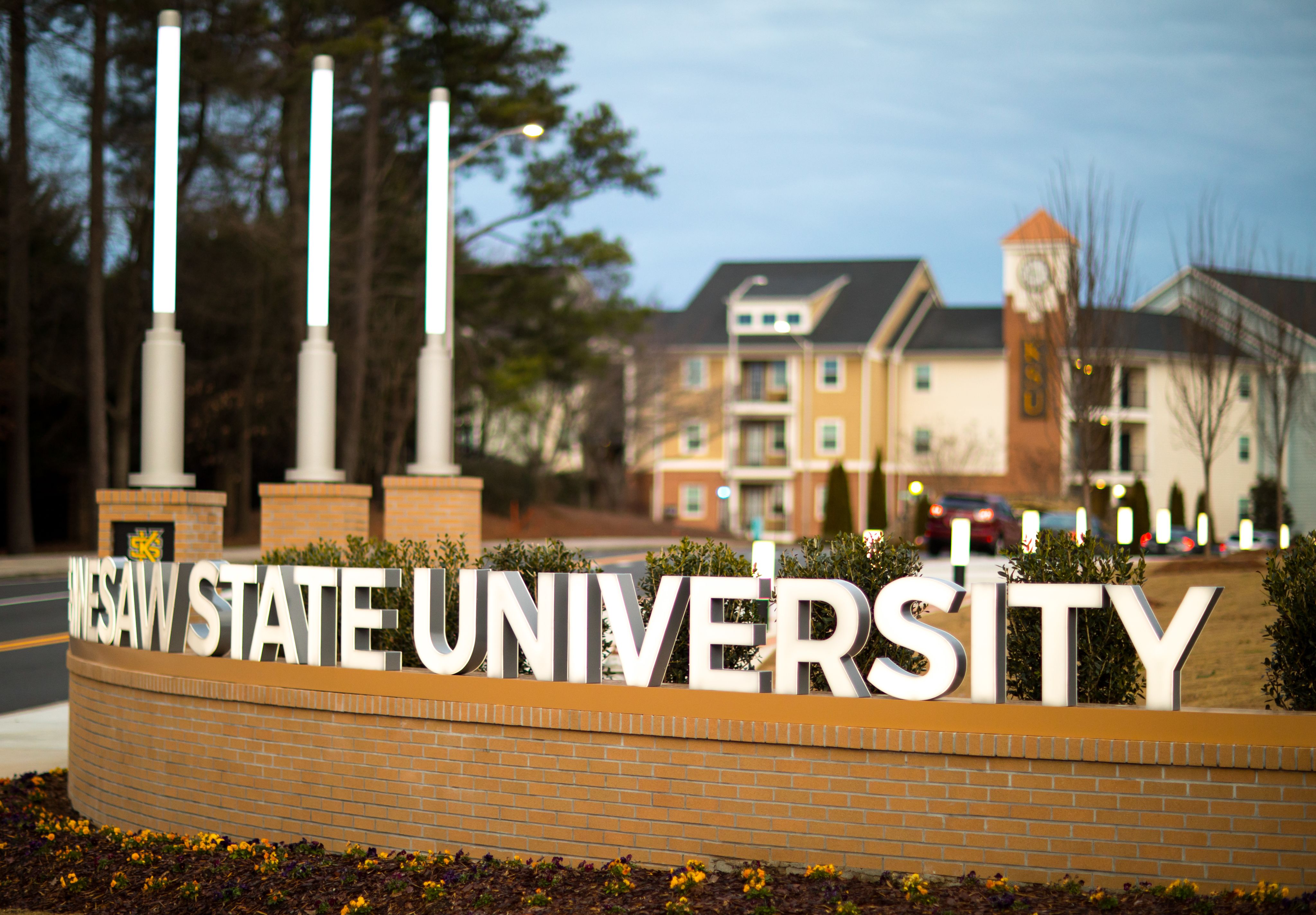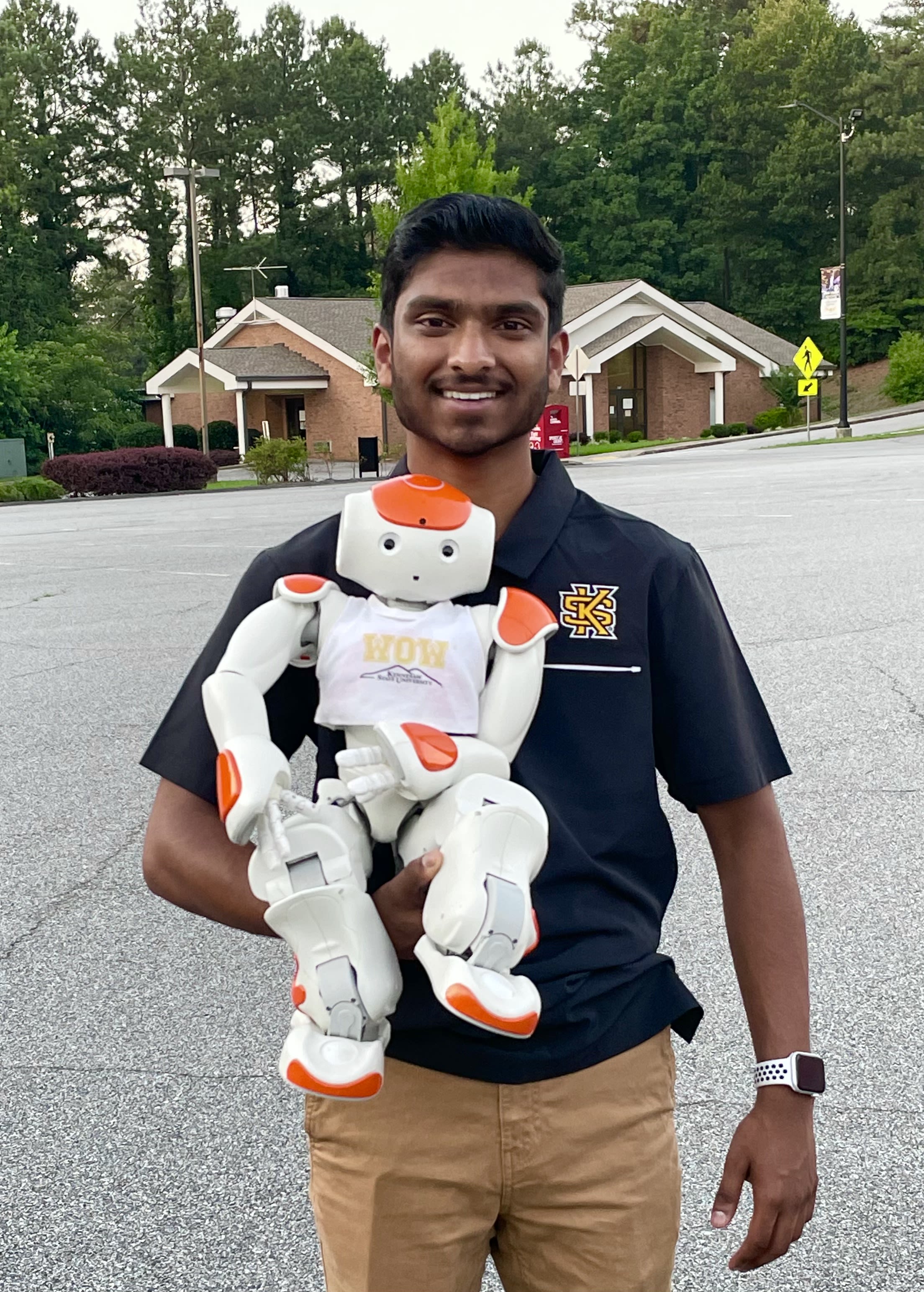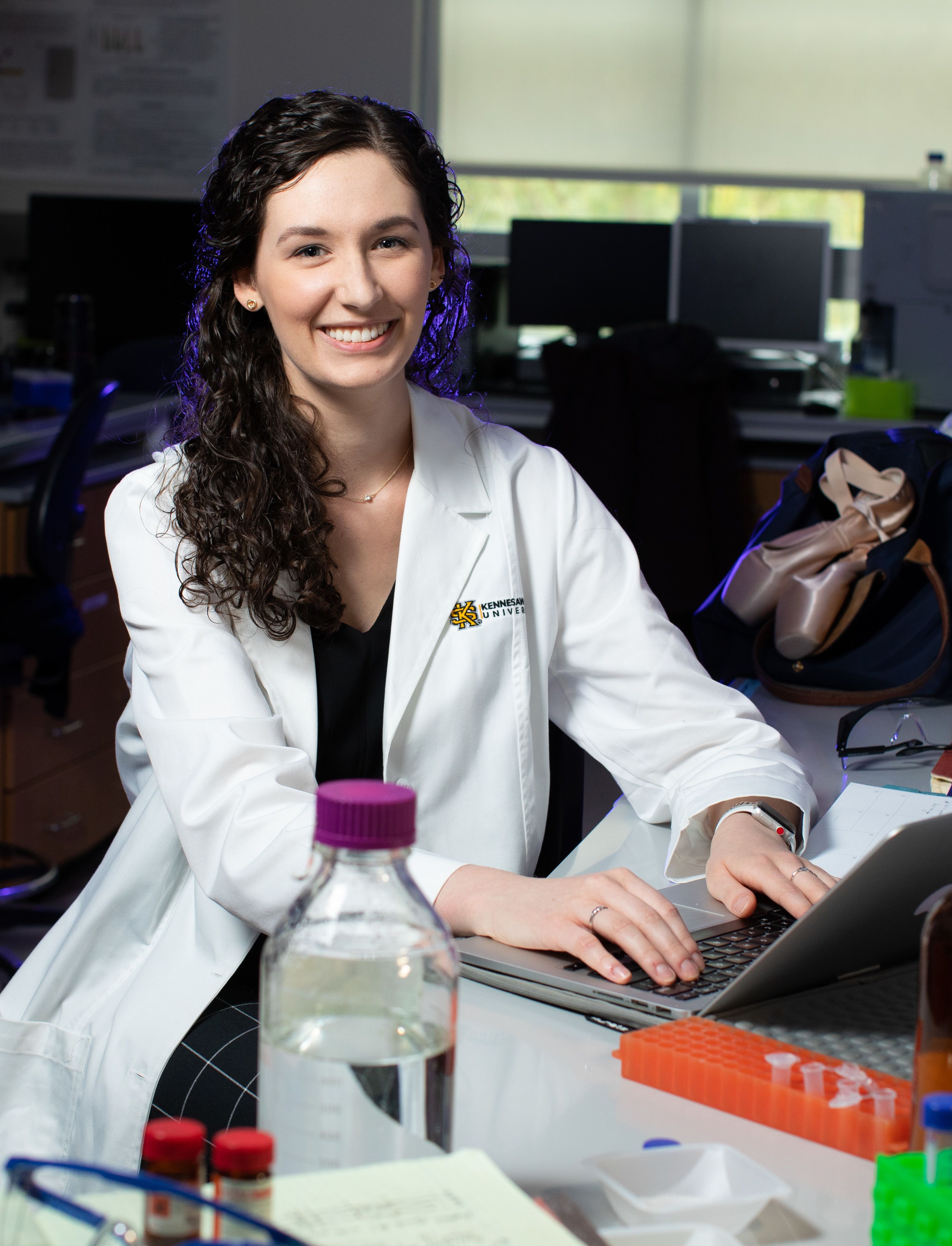Sharpening Academic Success
Undergraduate research with relevance provides Kennesaw State students foundation for careers

Kennesaw State University centers itself on its nearly 43,000 students, prioritizing research opportunities and engaged learning that help students succeed and prepare them for day one of their careers.
As an R2 research university, KSU’s continued commitment to offering every student opportunities for success reflects an education that fosters independence, critical thinking and thirst for knowledge. Student-centered faculty mentoring relationships developed at the university also provide long-term support that ensures success beyond the nest.
FIRST-YEAR ROBOTICS ENGINEER
Since his freshman year, Charles Koduru has participated in research experiences as a First-Year Scholar.
“I came to Kennesaw State for better opportunities and to spread my creative wings,” said Koduru. “I chose KSU because of its compelling mechatronics program and wholesome mentor relationship between professors and students.”
Kennesaw State’s First-Year Scholars Program took Koduru’s robotics passion a step further, providing experiential learning and the chance to collaborate with a faculty expert.
Under the mentorship of Muhammad Hassan Tanveer, assistant professor of robotics and mechatronics engineering, Koduru’s project focused on minimizing errors in robot navigation. Using bat echolocation as a model, Koduru created a path planning and obstacle avoidance algorithm that, through an image processing robot, guided a wheeled robot to a predetermined destination. He made his first conference presentation at KSU’s spring Symposium of Student Scholars.
“Charles is intelligent, motivated and enthusiastic about research,” Tanveer said. “As a result of his dedication, two of our research articles were accepted in prestigious peer-reviewed robotics conferences.”

Charles Koduru, KSU student.
Charles Koduru, KSU student.

Hope Didier, KSU graduate.
Hope Didier, KSU graduate.
COMPUTER SCIENTISTS WITH BIOMEDICAL FOCUS
Cora Meador and Ryan Deem, senior computer science majors, are the creators of BreastNet, a machine learning model that classifies breast cancer into high- and low-risk categories using MRI images and clinical data.
“Our goal is to use machine learning to analyze trends and predict the five-year survival scores of patients with a higher risk of breast cancer,” Meador said. “This information can be used to assess prognosis, allowing patients to make better informed treatment decisions.”
The project began when both enrolled in Mohammed Aledhari’s machine learning course, but soon turned into a larger research endeavor. Aledhari, an assistant professor of computer science, was immediately impressed with their work ethic, and the students say their research has allowed them to solve real-world problems.
“The satisfaction gained from finding solutions during a long-term project has inspired me to pursue research as a career,” Meador said.
“Undergraduate research is important because not many do it,” added Deem. “But it’s important to be able to have the skills to learn and build upon ideas that you always wanted to try and then test it. Experiment. Build something. Make it better.”
FUTURE PHYSICIAN ASSISTANT AND RESEARCHER
Hope Didier, who graduated with degrees in both dance and molecular and cellular biology, called her undergraduate KSU research experience “phenomenal.” Until college, she had only considered a professional dance career, but an on-campus interview with the President’s Emerging Global Scholars (PEGS) program piqued her interest in research and furthered her consideration of a medical career.
“I assumed the pursuit of dual degrees would be the highlight of my undergraduate education, but my involvement in laboratory and clinical research changed my professional pursuits,” explained Didier. “Research is a setting where my passion for discovery and investigation thrives.”
Her research focused on cell-penetrating peptides, which deliver biomolecular cargo into cervical cancer cells to stop cell growth and prompt cell death. She presented her work at the National Conference on Undergraduate Research, as well as to the University System of Georgia Board of Regents.
“Hope is already operating at the level of a second-year Ph.D. student,” said Jonathan McMurry, professor of biochemistry. “She faces everything with a growth mindset and sunny optimism highly valued in a research scientist, health care provider and problem-solver.”
RESEARCH WITH PURPOSE
Kennesaw State’s Office of Undergraduate Research aims to promote high-quality, collaborative research and scholarship in all disciplines, make research an integral part of the undergraduate experience and become a premier resource for undergraduate research at KSU and nationwide.
The university’s commitment to research with relevance means students learn through engagement in practical settings that prepare them for whatever career path they choose.
KSU’s focus on student experience, opportunity and development and its effort to ensure each student has equal opportunity for success has been the catalyst for the university’s rapid growth and has established it as a destination institution for students.
This content was paid for and created by Kennesaw State University. The editorial staff of The Chronicle had no role in its preparation. Find out more about paid content.



